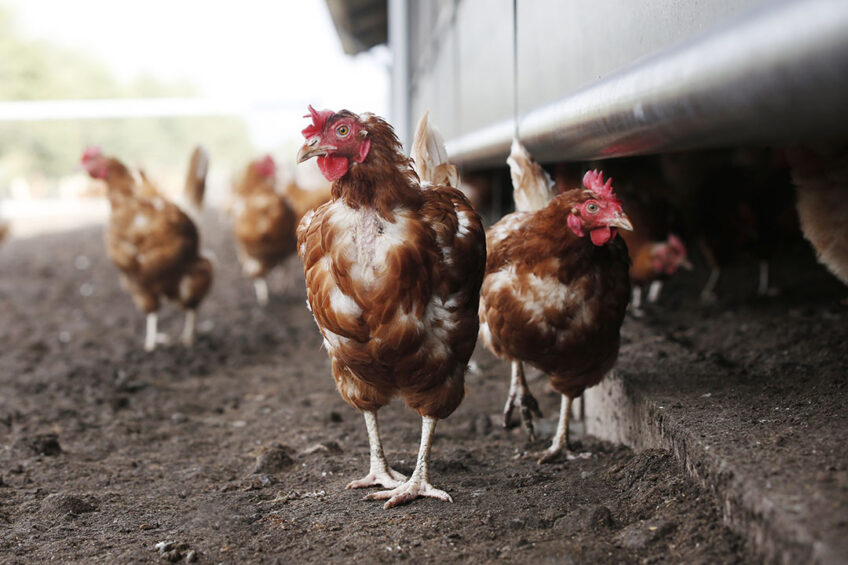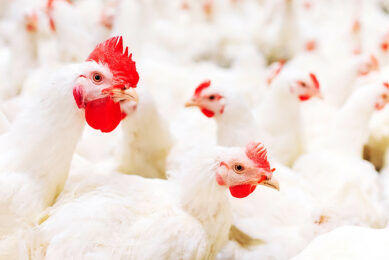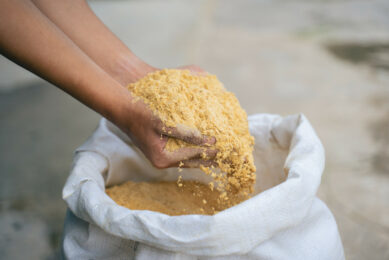Rubber seed oil improves the performance of immune-challenged laying hens

In a new study researchers found that rubber seed oil supplementation in diets of immune-challenged laying hens improved laying performance, reduced immunological stress and alleviated inflammation.
Rubber seed oil (RSO) is a plant oil extracted from the seeds of rubber (Hevea brasiliensis) trees. The continuous demand for latex leads to the extensive planting of rubber trees, which makes the production of RSO substantial and sustainable. RSO is rich in polyunsaturated fatty acids (PUFA), mainly linoleic acids and α-linolenic acids (ALA).
Anti-inflammatory benefits
Reports show that, compared to soybean oil, RSO has about 3 times the ALA content of soybean oil. ALA is an important precursor of eicosapentaenoic (EPA) and docosahexaenoic (DHA), which are commonly reported to have anti-inflammatory benefits. Studies show that appropriate PUFA source supplementation is a feasible option for stabilising productive performance, regulating immunity, and alleviating inflammation in poultry.
In their previous study, researchers working on the current study found rubber seed oil to be rich in phenols and flavonoids. Relating to studies that found positive effects of phenols and flavonoids on productive performance, immunity, and inflammatory response of laying hens, the researchers speculated that the addition of RSO might improve the bioavailability of these bioactive components and help alleviate the immunological stress and inflammatory response of immune-challenged laying hens.
Challenging the immune system
To evaluate the effect of rubber seed oil supplementation on productive performance, immunity and inflammatory response of laying hens, 25-week-old Lohmann Brown laying hens were randomly divided into 5 treatment groups:
Control group,
Lipopolysaccharide (LPS) group,
Rubber seed oil (RSO) groups (1, 2, and 4% RSO).
To induce the inflammatory response, hens in the LPS group and the 3 RSO supplementation groups were injected intraperitoneally with LPS (1 mg/kg body weight, dissolved in saline) on the 15th, 18th, 21th, 24th, and 27th day of the test, and the control group was injected with the same amount of saline but without LPS. The LPS injection was used to stimulate immunological stress and an inflammatory response. The effects of dietary RSO supplementation were evaluated by detecting parameters of immune cells, plasma immunoglobulins, hormone levels, and inflammatory factors.
Productive performance
Dietary RSO supplementation had a beneficial effect on the productive performance of laying hens. The results showed that, compared to the control group, the LPS stimulation significantly reduced egg production, total egg weight, daily egg mass, and feed intake. On the contrary, compared to the LPS-challenged group, RSO supplementation significantly increased egg production/laying percentage, total egg weight, daily egg mass, and feed intake in a dose-dependent manner. The highest RSO dose (4%) produced the best results. However, the feed conversion ratio was not different between the diets.
Overall, the results showed that RSO supplementation alleviates the reduction in productive performance induced by LPS stimulation. The researchers pointed to the potency of RSO in inhibiting the mRNA expression of inflammatory genes in immune organs such as the liver and spleen of laying hens, thus reducing the inflammatory response and maintaining a normal physiological state and productive performance.
Immune response
LPS stimulation significantly increased white blood cells and lymphocyte concentrations in comparison to the control group. However, RSO supplementation reduced WBC and lymphocyte concentrations to a level similar to that in the control group. In addition, the LPS stimulation significantly increased aspartate aminotransferase (AST) activity and IgA content, while RSO supplementation reduced these 2 indices to a relatively normal level. Of course, as is well known, white blood cells are one of the most important immune cells and a critical indicator to reflect the level of the immune response, whereas plasma immunoglobulins protect the body against invading bacteria and viruses. On the other hand, plasma aminotransferases, including AST and alanine aminotransferase (ALT) are reliable and sensitive markers of liver damage and inflammation.
Inflammatory response
Inflammatory markers of LPS-challenged laying hens were determined by measuring plasma levels of insulin, glucagon, triiodothyronine (T3), thyroxine, interleukin-2 (IL2), and tumour necrosis factor-α (TNF-α). Of these parameters, LPS stimulation significantly increased the concentration of T3, IL-2, and TNF-α. Compared to the LPS-challenged group, RSO-supplemented groups decreased the content of T3, IL-2, and TNF-α to levels close to those of the control group.
Compared to the control group, the LPS challenge increased the mRNA expression of inflammatory-related genes TLR4, NF-kB, IL-1β, and IL-6 in the ileum and liver of laying hens, while RSO supplementation reduced the expression of these inflammatory-related genes in LPS-challenged hens. Similar effects were found in the spleen of laying hens: RSO significantly reduced the increase of TLR4, NF-kB, and IL-1β gene expression stimulated by LPS. These results indicate that RSO supplementation reduces inflammatory-related gene expression of the TLR4/NF-kB signalling pathway in LPS-challenged laying hens, thus alleviating inflammation. It was added that DHA and EPA could replace arachidonic acid in the cell membrane and competitively combine cyclooxygenase and lipoxygenase to reduce the production of inflammatory mediators and further reduce the inflammation response.
Egg quality
In their previous study the researchers found that dietary RSO supplementation in laying hens enriched yolk with n-3 PUFA (Table 1), improved yolk colour, and reduced yolk cholesterol contents. It was suggested that rubber seed oil can be used as a feed resource to produce n-3 PUFA-enriched eggs.
Conclusion
In conclusion, this study demonstrated that as PUFA-enriched plant oil, rubber seed oil addition to layer diets could dose-dependently improve the immune status and productive performance of LPS-challenged laying hens. The researchers recommended the inclusion of rubber seed oil at 4% under the conditions applied in their study.
“This study provides insight into the positive contribution of rubber seed oil as a feed oil to the overall health and welfare of laying hens”, they said.
They also mentioned that the differences in the productive performance of laying hens supplemented with PUFA-enriched plant oil observed in other studies could be attributed to differences in composition and dose of dietary PUFA, lipid sources, laying hen breeds, and nutrient levels.
This article is a summary of the paper: Rubber (Hevea brasiliensis) seed oil supplementation attenuates immunological stress and inflammatory response in lipopolysaccharide-challenged laying hens, published in Poultry Science Volume 101, Issue 9.











